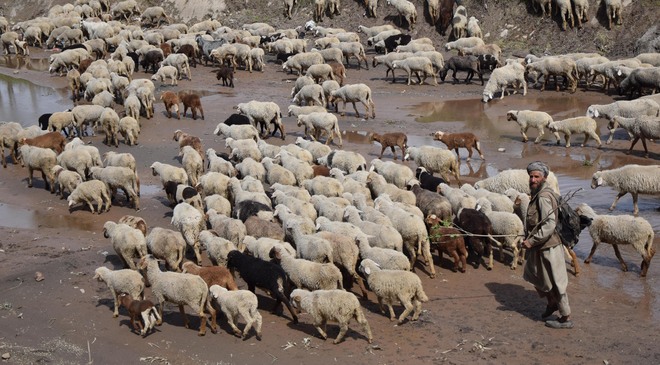Tribune News Service
Jammu, April 15
With the temperature beginning to rise in the plains of the Jammu region, nomadic Gujjar and Bakerwal tribes have started seasonal migration towards the upper reaches of the Shivalik, Pirpanjal and Trikuta mountains in the north-western Himalayas.
The tradition of seasonal tribal migration has been surviving since centuries and nomadic tribes mainly the Gujjar and Bakerwal people migrate to their summer destinations in the first week of April every year. They reach their destinations after 40 to 45 days of travel.
“We urge the government to provide necessary logistics to tribes like mobile animal dispensaries, health facilities on migration routes so that they don’t suffer,” said Dr Javaid Rahi, secretary, Tribal Research and Cultural Foundation.
Dr Rahi said the main migration routes, including the Jamiya Gali, Gora Batta, Nanansar, Ropadi Dharhal Pass and Mughal Road were badly damaged due to heavy snowfall and rain during the last winter and required urgent repairs.
While interacting with nomads, Dr Rahi said the matter regarding restoration of all restricted pastures and dhoks near the Indo-Pak border and in the Ladakh area of Jammu and Kashmir was taken up with the Defence Ministry.
“We have written a number of letters to the Defence Ministry through the foundation and pleaded to revoke all orders restricting nomads to migrate seasonally in the state, especially to border dhoks located in Poonch, Rajouri, Baramulla, Kupwara, Bandipora, Ladakh and Kargil areas,” said Dr Rahi.
Unlock Exclusive Insights with The Tribune Premium
Take your experience further with Premium access.
Thought-provoking Opinions, Expert Analysis, In-depth Insights and other Member Only Benefits
Already a Member? Sign In Now











